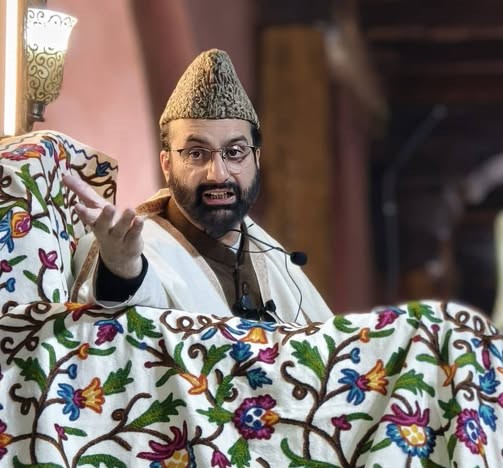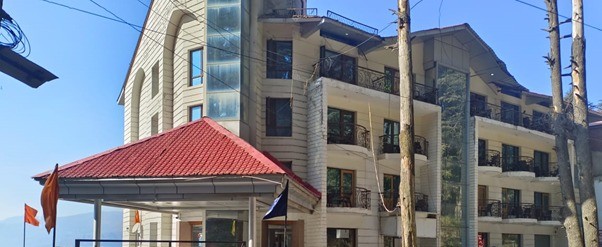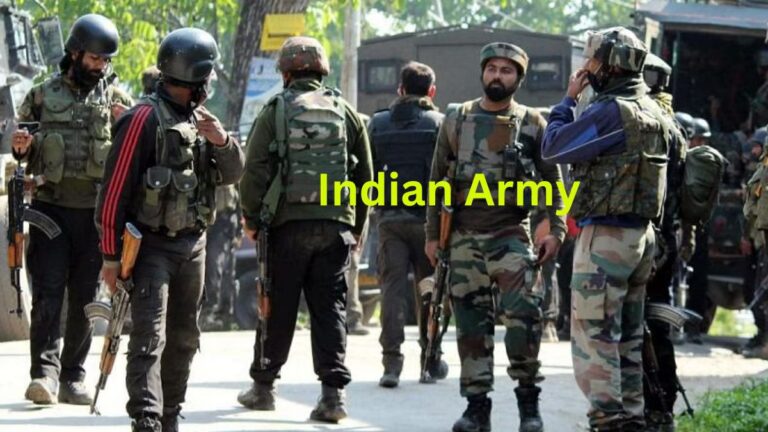Mirwaiz Umar Farooq Honors Battle of Badr Martyrs and Molana Muhammad Yousuf Shah at Historic Srinagar Gathering After 7 Years
The historic Aali Masjid Eidgah in Srinagar buzzed with life as a large gathering assembled after a seven-year hiatus to commemorate Youm-e-Badr, a day marking the Battle of Badr—Islam’s first significant clash between truth and falsehood. Leading the event was Dr. Molvi Muhammad Umar Farooq, the Mirwaiz of Kashmir, whose presence carried a deep resonance for the valley’s Muslim community. The occasion doubled as a tribute to the 58th death anniversary of the revered Islamic scholar and political leader, Mufassir-e-Quran Muhajir-e-Millat Mirwaiz Molana Muhammad Yousuf Shah, making it a powerful convergence of history, faith, and legacy.
A Day of Remembrance and Reflection
The Battle of Badr, fought in 624 CE under the leadership of Prophet Muhammad (Peace be upon him), holds a sacred place in Islamic history. It was a defining moment where a small, determined group of believers triumphed over a larger opposing force, laying the groundwork for the spread of Islam. Addressing the crowd, Mirwaiz Umar Farooq paid heartfelt tributes to the martyrs of this battle, emphasizing their courage and sacrifices. He highlighted how their victory not only shaped the faith’s early trajectory but also eased the path for future generations to share its message. His words struck a chord with the attendees, many of whom see parallels between that historic resilience and their own challenges today.
The gathering wasn’t just about looking back—it was a bridge to the present. After seven years, the Aali Masjid Eidgah, a site steeped in Srinagar’s cultural and religious fabric, reopened its doors to such an event. The gap, marked by restrictions and unrest, made this assembly all the more significant. For the people of Kashmir, it was a rare moment to come together, reflect, and honor their shared heritage under the Mirwaiz’s guidance.
Celebrating a Scholar’s Enduring Legacy
The event also served as a solemn tribute to Mirwaiz Molana Muhammad Yousuf Shah, whose death anniversary coincided with Youm-e-Badr. Known as Muhajir-e-Millat (the Exile of the Nation), he was a towering figure in Kashmir’s history—a scholar, preacher, and political leader who left an indelible mark. Mirwaiz Umar Farooq spoke warmly of his predecessor’s contributions, noting his unwavering commitment despite facing exile and hardship. “He remained steadfast in his principles,” the Mirwaiz said, “serving his people and nation through extraordinary religious, social, and community efforts.”
What stood out most in the Mirwaiz’s address was his praise for Yousuf Shah’s translation and interpretation of the Holy Quran into Kashmiri. Known as Bayan-ul-Furqan, this work broke barriers by making the Quran’s teachings accessible in the local tongue—a feat Mirwaiz Umar described as “destined to benefit generations.” Its widespread acceptance among Kashmiris underscores its enduring relevance, a testament to Yousuf Shah’s vision of connecting faith with identity.
A Modern Twist to a Timeless Mission
The gathering wasn’t just about honoring the past—it also looked to the future. Mirwaiz Umar Farooq announced an ambitious project by the Mirwaiz Foundation: a mobile app version of Bayan-ul-Furqan. Tailored to today’s digital age, this app aims to bring Yousuf Shah’s celebrated exegesis to a new generation, particularly the youth. Beyond preserving religious scholarship, it’s designed to strengthen ties to the Kashmiri language, which the Mirwaiz sees as a vital thread of the region’s identity. “This will connect our young people to their roots,” he said, signaling a blend of tradition and technology that could reshape how Kashmiris engage with their heritage.
The announcement drew nods of approval from the crowd, where prominent religious scholars and spiritual leaders like Molana Shaukat Hussain Keng, Molana Khursheed Ahmed Qanoongo, and others had gathered. These figures, too, spoke at length about Muhajir-e-Millat’s life, painting him as a patron whose influence continues to guide the valley’s moral and intellectual compass.
A Gathering Heavy with Meaning
The event at Aali Masjid Eidgah carried a weight beyond its religious focus. For many, it was a rare public appearance by Mirwaiz Umar Farooq, whose movements have often been restricted in recent years amid Kashmir’s complex political landscape. As the chairman of the All Parties Hurriyat Conference and a key spiritual leader, his role bridges faith and community aspirations, making such gatherings a focal point for both devotion and dialogue.
The seven-year gap since the last such assembly at this location added layers of anticipation. Attendees filled the space, their presence a quiet statement of resilience and unity. The Mirwaiz’s words—whether about the martyrs of Badr or Yousuf Shah’s legacy—resonated as a call to remember history while adapting to the present, a message that felt especially poignant in a region navigating constant change.
Looking Ahead
As the event concluded, the echoes of prayers and tributes lingered over Aali Masjid Eidgah. The Mirwaiz’s tribute to the Battle of Badr’s martyrs and Yousuf Shah’s legacy wasn’t just a look back—it was a step forward. With the upcoming Bayan-ul-Furqan app, the Mirwaiz Foundation is poised to carry this legacy into the digital era, ensuring that Kashmir’s spiritual and cultural inheritance remains vibrant for years to come.
For those who gathered on March 18, 2025, the day was a reminder of their roots and a glimpse of what lies ahead. In honoring the past, Mirwaiz Umar Farooq offered a vision for the future—one where faith, language, and community stand strong, even amidst the challenges of a modern world.
You Might Also Like:
Militant Killed, Policeman Injured in Handwara Encounter
J&K High Court Quashes PSA Detention of Advocate Nazir Ahmad Ronga
Japanese Adult Film Star Kae Asakura Converts to Islam After Trip to Malaysia
71-Year-Old Abdul Karim Found Dead with Gunshot in Reasi’s Tanda Area






